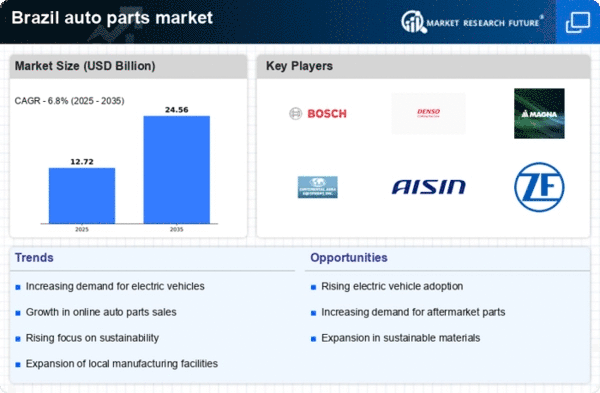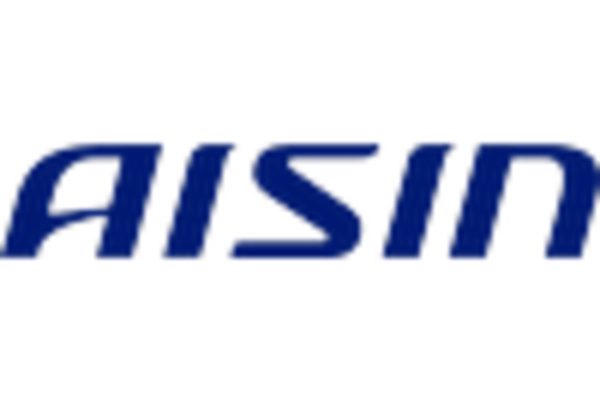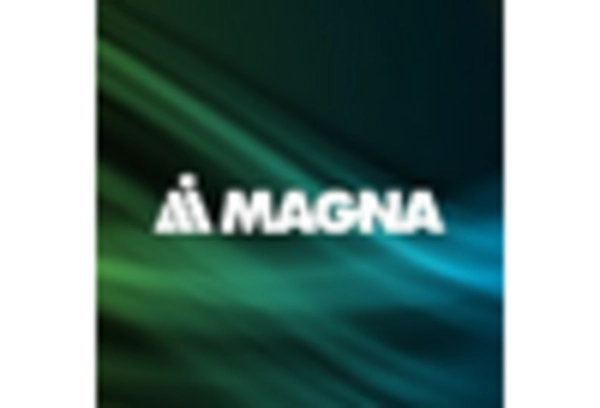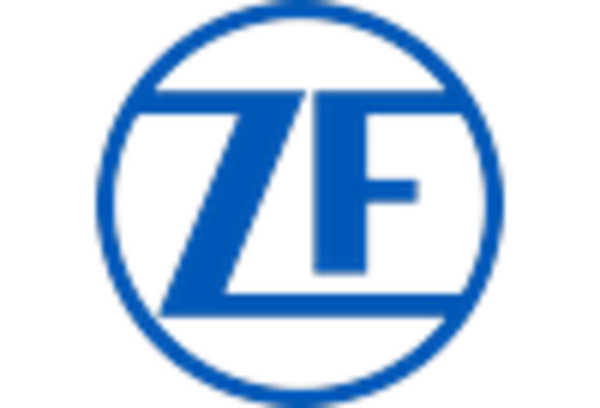Increasing Vehicle Ownership
The rising trend of vehicle ownership in Brazil appears to be a primary driver for the auto parts market. As more individuals acquire vehicles, the demand for replacement parts and accessories is likely to increase. In 2025, vehicle ownership in Brazil is projected to reach approximately 45 million units, indicating a growth rate of around 3% annually. This surge in ownership necessitates a robust supply of auto parts, as vehicles require regular maintenance and repairs. Consequently, the auto parts market is expected to benefit from this growing consumer base, as owners seek quality components to ensure vehicle longevity and performance. Furthermore, the increasing number of vehicles on the road may lead to a heightened focus on aftermarket parts, which could further stimulate market growth.
Growth of E-commerce Platforms
The expansion of e-commerce platforms in Brazil is reshaping the auto parts market. With the increasing penetration of the internet and mobile devices, consumers are increasingly turning to online channels for purchasing auto parts. In 2025, it is projected that online sales of auto parts could account for approximately 25% of total market sales, reflecting a significant shift in consumer behavior. This trend not only provides convenience for consumers but also allows for greater price transparency and comparison. As a result, traditional brick-and-mortar retailers may need to adapt their strategies to remain competitive. The rise of e-commerce is likely to drive innovation in logistics and distribution, further enhancing the efficiency of the auto parts market.
Regulatory Changes and Standards
Regulatory changes and evolving standards in Brazil are impacting the auto parts market. The government is increasingly implementing stricter regulations regarding vehicle emissions and safety standards. These changes necessitate the development of new auto parts that comply with these regulations. For instance, the introduction of new emissions standards in 2025 may require manufacturers to invest in research and development to create compliant components. This regulatory environment could lead to increased demand for high-quality, innovative parts that meet the new standards. Consequently, the auto parts market may experience growth as manufacturers adapt to these changes and consumers seek compliant products to ensure their vehicles meet legal requirements.
Rising Demand for Aftermarket Parts
The rising demand for aftermarket parts in Brazil is a notable driver for the auto parts market. As vehicle owners become more aware of the benefits of aftermarket components, including cost savings and enhanced performance, the market for these parts is likely to expand. In 2025, the aftermarket segment is expected to account for approximately 40% of the total auto parts market, reflecting a growing preference for non-original equipment manufacturer (OEM) parts. This trend is driven by factors such as increased vehicle age and the desire for customization among consumers. As a result, the auto parts market is poised to benefit from this shift, as manufacturers and retailers focus on providing a diverse range of aftermarket options to meet consumer preferences.
Technological Advancements in Automotive Manufacturing
Technological advancements in automotive manufacturing are significantly influencing the auto parts market in Brazil. Innovations such as automation, robotics, and advanced materials are enhancing production efficiency and reducing costs. In 2025, it is estimated that the adoption of these technologies could lead to a 15% reduction in manufacturing costs for auto parts. This shift not only improves the competitiveness of local manufacturers but also encourages investment in research and development. As companies strive to meet the evolving demands of consumers, the integration of cutting-edge technologies is likely to result in higher quality products and increased production capacity. Consequently, the auto parts market stands to gain from these advancements, as manufacturers are better equipped to respond to market needs.
















